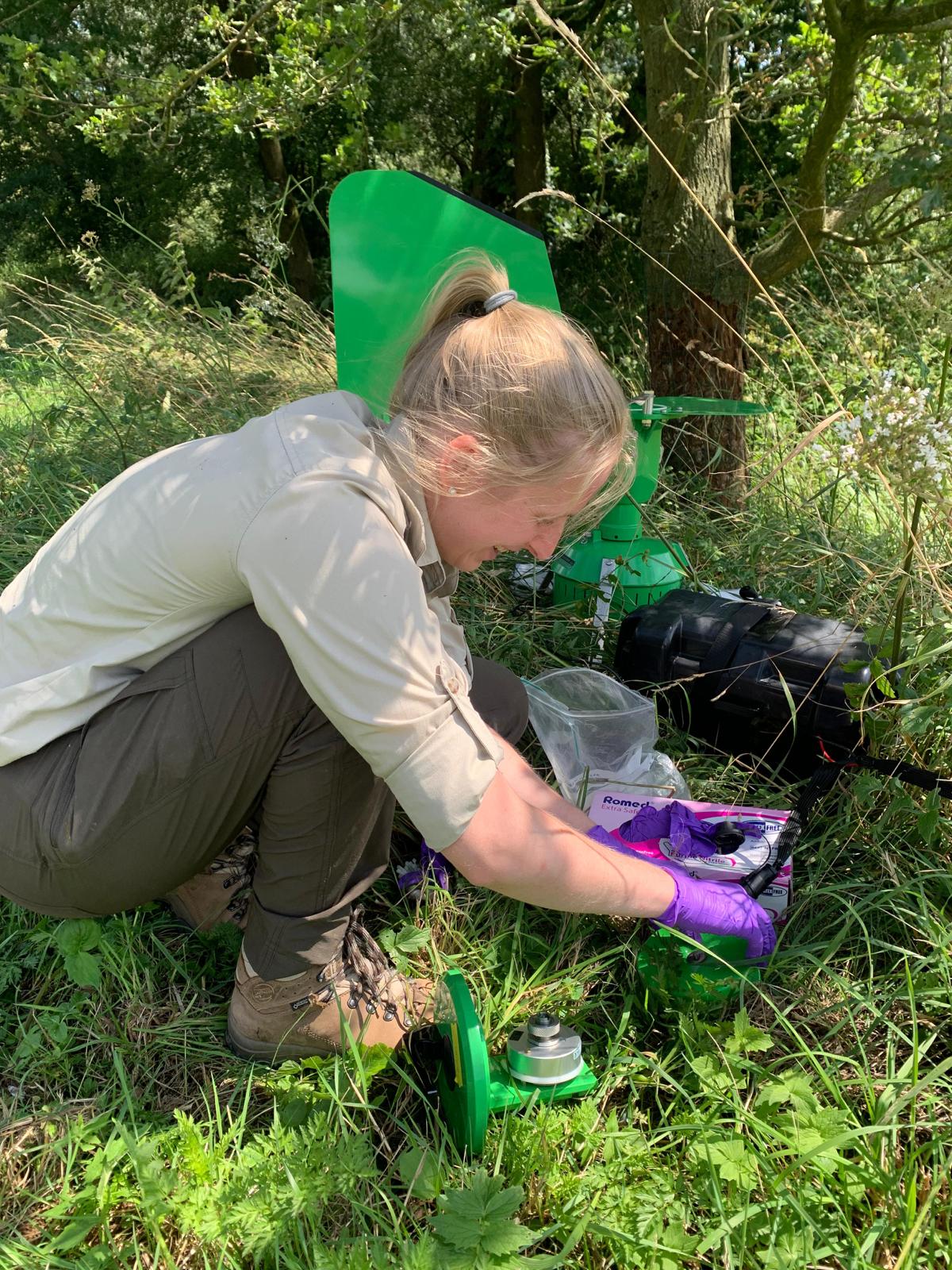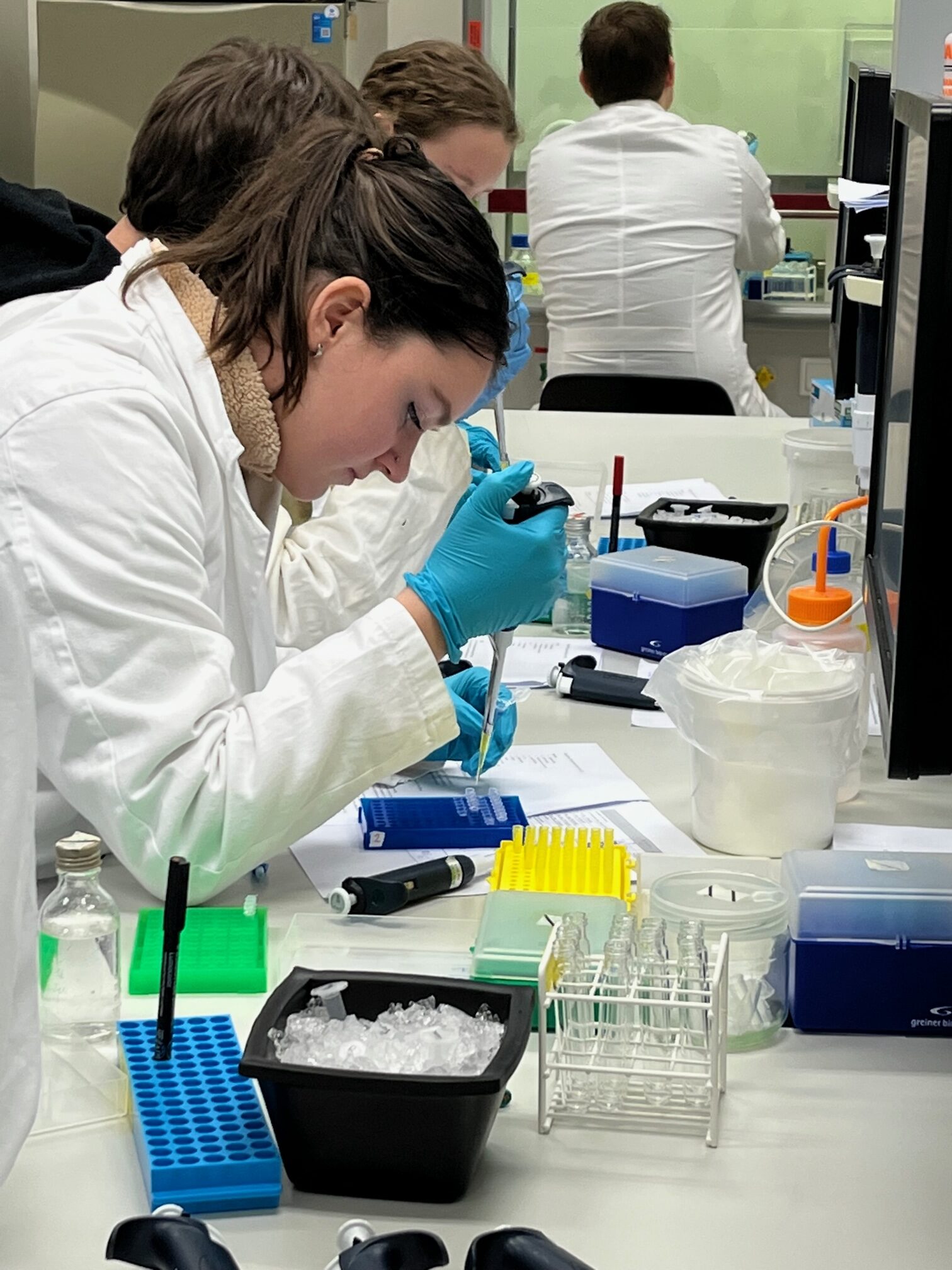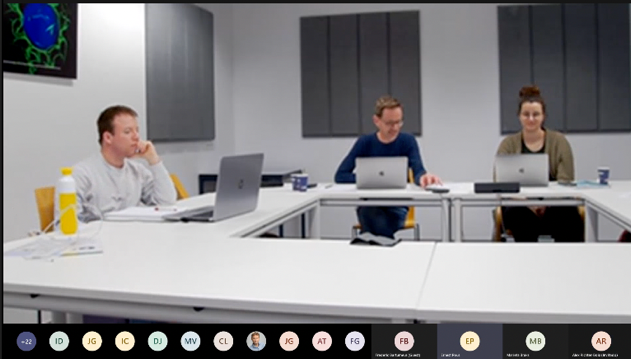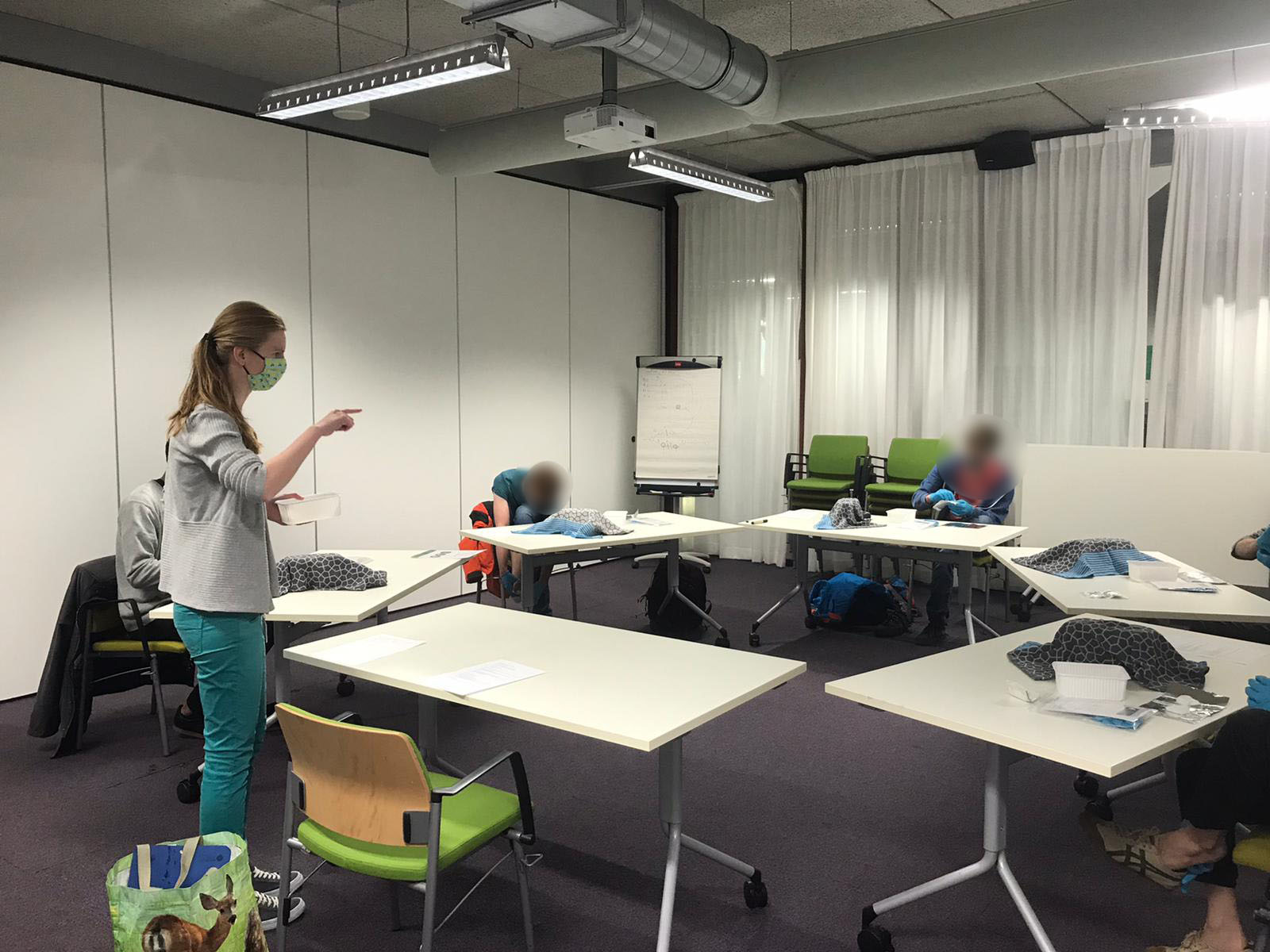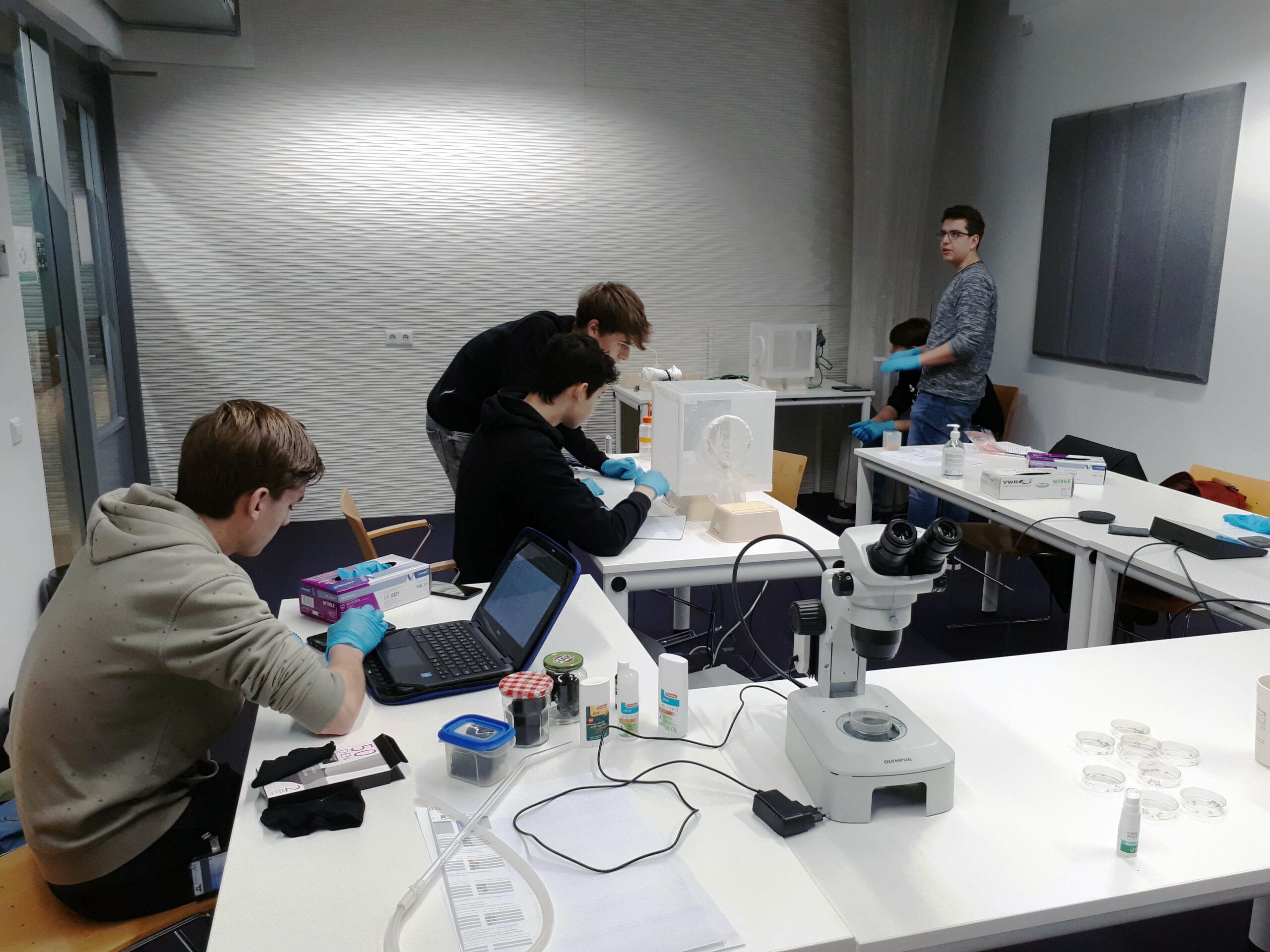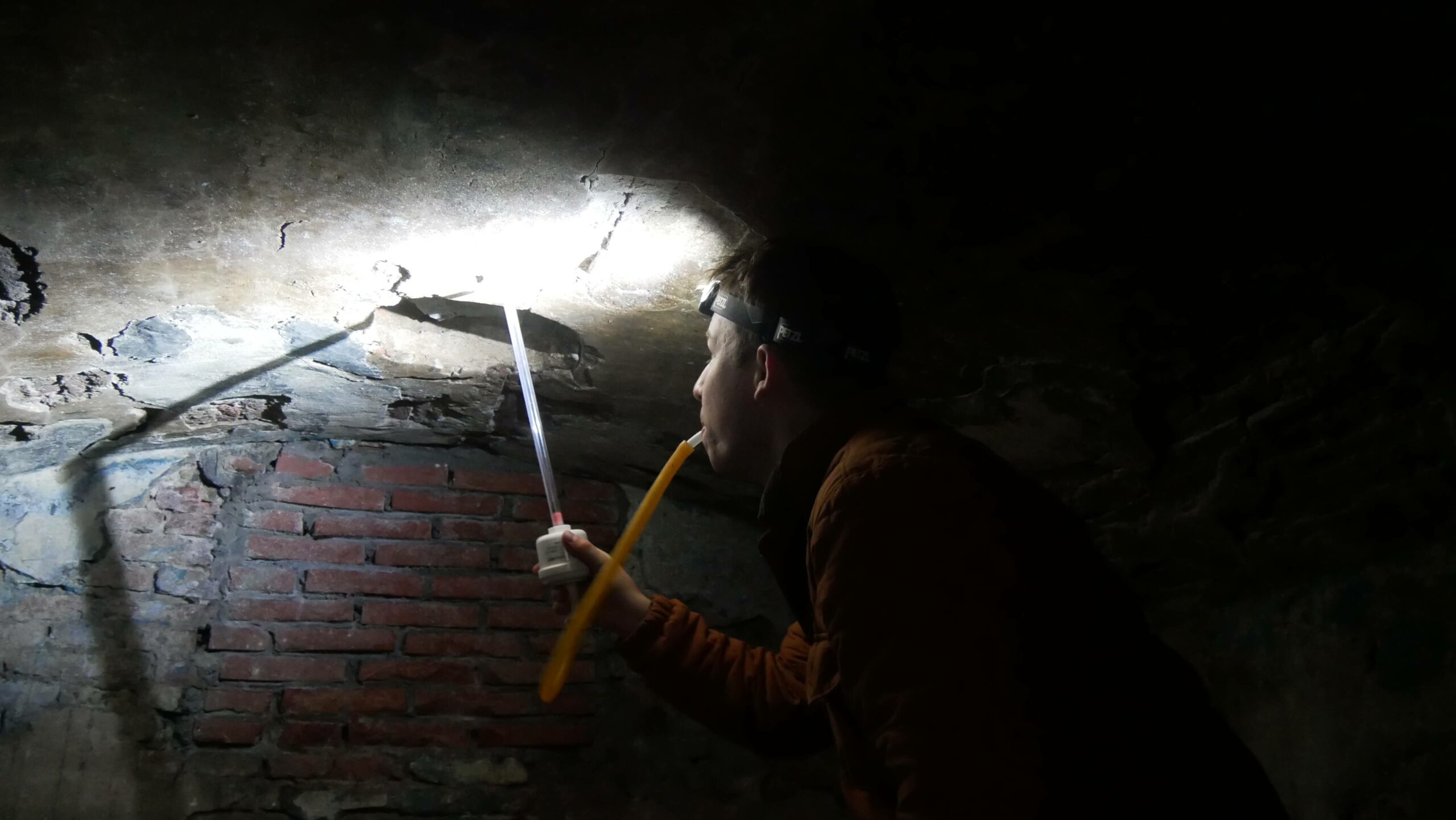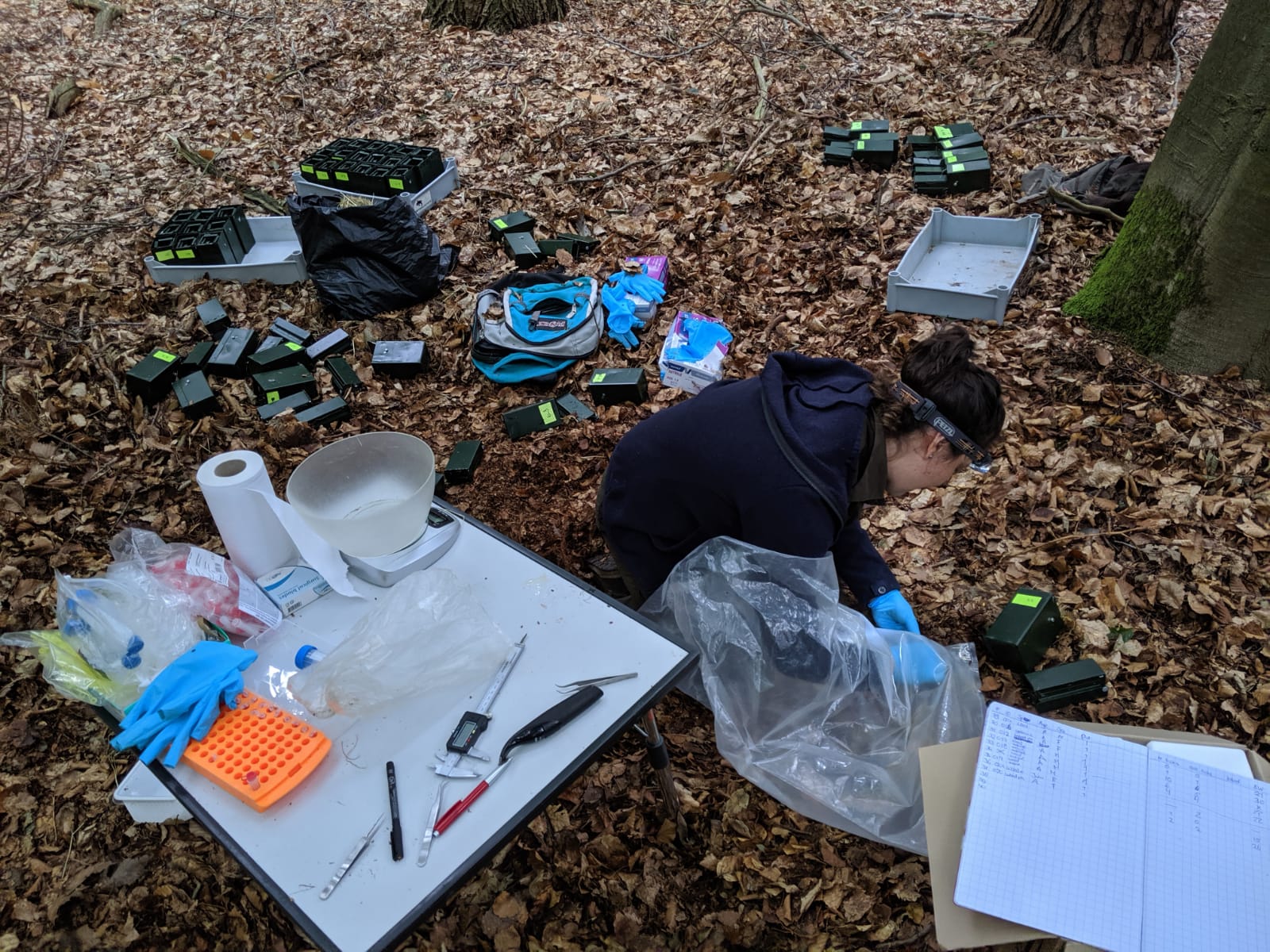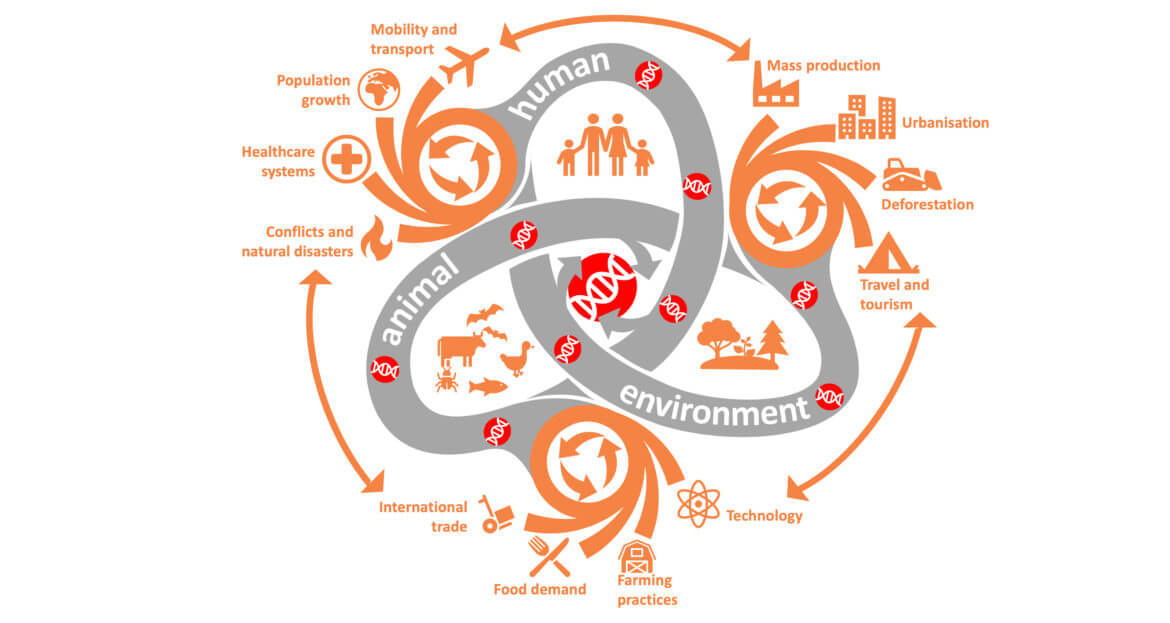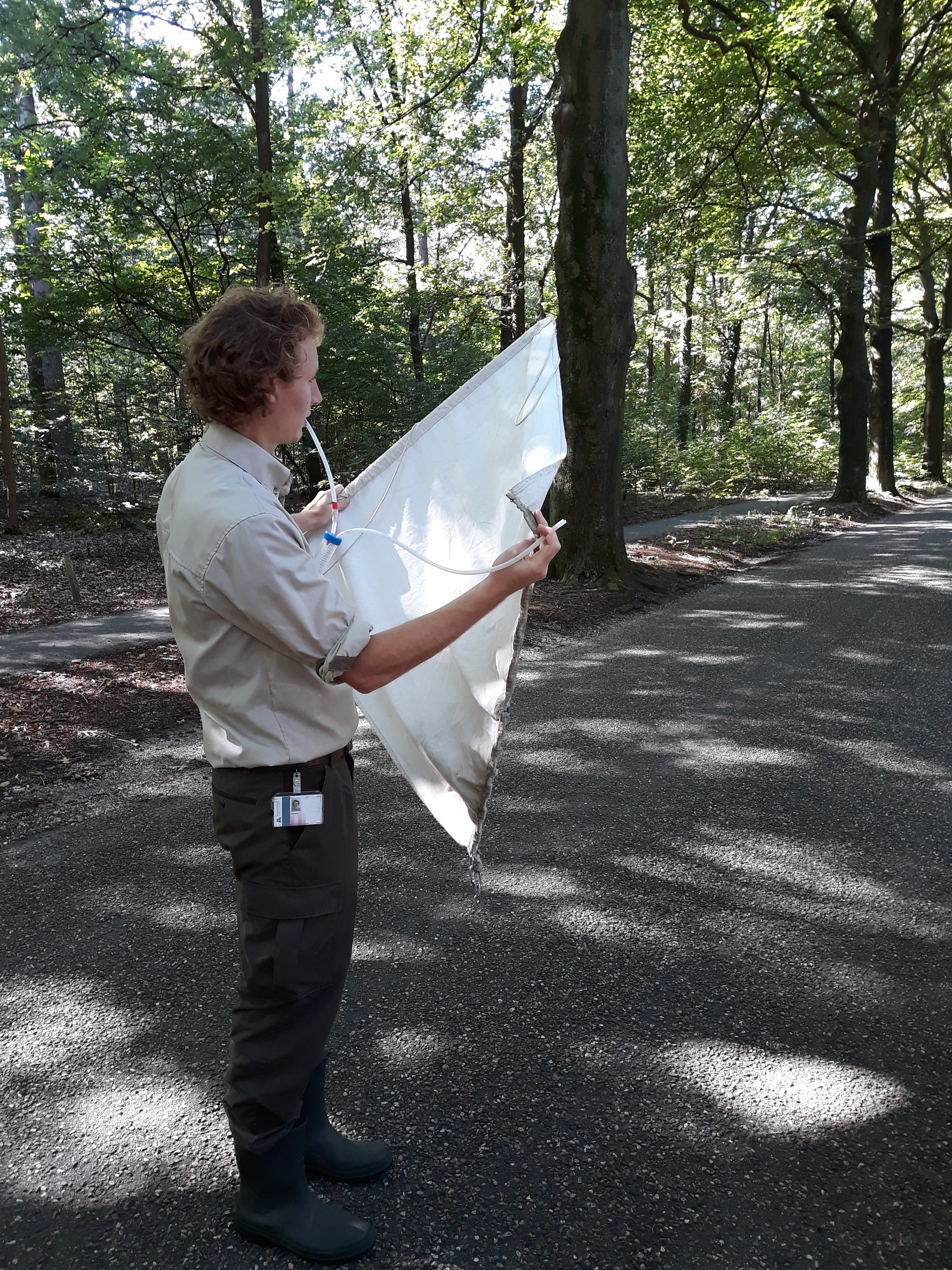With the cold we are experiencing now, it is always nice to look back at our summer adventures! Last summer, I (Carlijn Balvers) conducted my first field season, where I tried to catch blood-fed mosquitoes. With these blood-fed mosquitoes, we can do all sorts of interesting analyses. For example, on what hosts did the mosquitoes feed? Are there maybe pathogens inside the blood that we can detect to know which pathogens are circulating in animals?
Frontiers in Medical and Veterinary Biology (WUR course)
During the course ‘Frontiers in Medical and Veterinary biology’, students follow an interesting practical programme on entomology, virology and nematology topics. Sander Koenraadt, Rody Blom and Charlotte Linthout were assisting the students this year in discovering commonly used molecular techniques in the field of medical entomology. This year’s practical focus was on the detection of the West Nile and Usutu viruses in overwintering mosquitoes. Want to know more about the contents and results of this course? Then read along!
Scientists in the field: Asian bush mosquitoes in Lelystad
Temperatures are rising and days are getting longer, this means it is summertime! Although this is the time of the year that a lot of people look forward to, it is also the time of the year when annoying mosquitoes are bothering us again.
How to use citizen science in mosquito surveillance? Report from an international workshop
On the 22nd and 23rd of March, we co-hosted the workshop ‘Strengthening the role of citizen science and digital entomology in mosquito-borne disease surveillance in Europe’. It was co-organized by Wageningen University and Research (WUR) and the Centre for Advanced Studies of Blanes (CEAB) and supported by Aedes invasive mosquito (AIM) COST and InfraVec2.
Scientists in the field: can mosquitoes smell their success from our blood?
Hi everyone! My name is Marieke de Swart and I am a PhD candidate at the OHE group. We all know that some people are more attractive to mosquitoes than others. I am trying to find out why this is the case for the malaria mosquito Anopheles coluzzii (formerly An. gambiae s.s.). Do people that smell more attractive to mosquitoes have other advantages for this mosquito? Female mosquitoes bite us because they need blood to lay eggs. Can we find something in our blood to explain these differences in attraction? Can mosquitoes smell the person with the blood that will give them an advantage?
The attraction of mosquito research to (very) early-career scientists
Every year a workshop is hosted by Jeroen Spitzen and myself (Tessa), to help high-school students with their school research projects, called ‘profielwerkstuk’. During the workshop, students get the opportunity to collect data, get a tour of our mosquito rearing and experimental facilities, and have the possibility to ask their questions to the mosquito experts. Jeroen has been organizing this practical for more than 10 years!
Scientists in the field: overwintering ecology of mosquitoes
When thinking of mosquitoes, many people think of hot summer nights on which they are repeatedly annoyed by the little brats. Rightly so, as the vast majority of mosquito species is mostly active at some point during summer. Consequently, this is also the period during which the chance of mosquito-borne disease circulation is highest. Therefore, mosquito surveillance efforts are usually performed during summer, but what happens with these insects during winter?
Scientists in the field: tick-borne diseases and innate immune assays in rodents
We have all heard about tick-borne diseases and their impact on human health. I’m Laura, an MSc student in Animal Sciences at Wageningen University & Research. As an MSc student, I’m lucky to be able to go on field trips and see beyond books and papers how tick-host interactions work.
Vacancies: two new PhD positions
We are recruiting! Within the newly funded NWA project, we will be looking for 26 PhD candidates to work on a wide variety of topics related to the risks of mosquito-borne diseases in the Netherlands. Two positions (see project descriptions below) will be hosted at the OHE group and the candidates will work within the new One Health Consortium.
Awarded grant ‘Idea generator 2019’
Julian Bakker, a PhD candidate in our OHE group, has been awarded with the Idea Generator grant worth of € 50.000. That calls for a celebration!
What is the Idea Generator exactly? The Dutch Research Agenda intends to foster curiosity by supporting ideas that are considered high risk, high gain science projects with potential for societal impact. What will Julian’s work be about?
